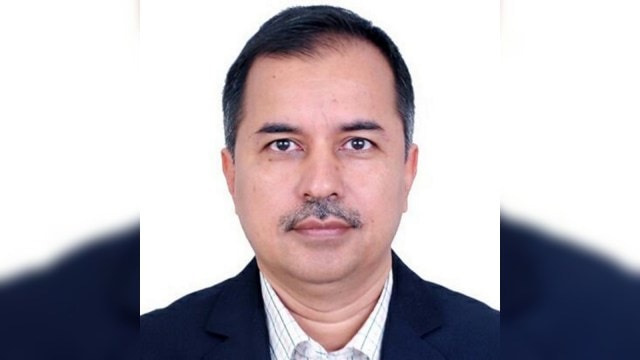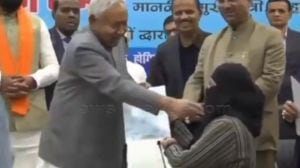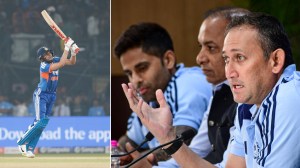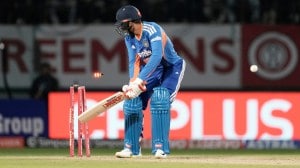‘Sometimes all they need is a little love’: Meet IIT Kharagpur’s first Dean of Student Well-Being
With four unnatural deaths this year, the institute has created a new post to focus solely on student health, living conditions, and mental well-being.
 Professor Arun Chakraborty
Professor Arun ChakrabortyA few years ago, a doctoral student on the verge of dropping out was sent to Professor Arun Chakraborty at the Indian Institute of Technology-Kharagpur. Colleagues warned him that the youth may never finish his research. Within weeks, Chakraborty had turned the tide. The student began making progress, and soon enough, his first paper appeared in a respected journal.
“It was just a little bit of inspiration and motivation,” recalls Chakraborty, a professor at IIT-Kharagpur’s Centre for Ocean, River, Atmosphere and Land Sciences (CORAL). “When they know they can trust you, they can overcome hurdles.” That belief — in listening first, in trust as the foundation of teaching — has marked his years at IIT-Kharagpur since 2006 when he joined as assistant professor. Students have come to him not just with academic hurdles but with personal secrets too. “Whatever they tell me stays with me,” he says.
This month, Chakraborty’s ability to inspire and support found institutional recognition. IIT-Kharagpur named him as its first Dean of Student Well-Being — the first such post in the entire IIT system. The new role has been carved out of the sprawling portfolio of student affairs to focus squarely on mental and physical health, living conditions, and interventions before crises escalate. The appointment comes at a difficult time. Just weeks ago, a fourth-year student was found dead in his hostel room — the fourth unnatural death on campus this year.
Read | In post-pandemic years, mental health counselling rooms at IITs are busier than ever
Speaking to The Indian Express, IIT-Kharagpur Director Suman Chakraborty says: “After being appointed as Director, I gave student well-being the highest priority… I introduced the Dean, Well-Being, as possibly the first such exclusive portfolio in any institution. Recognising that such a Dean should have a delicate blend of empathy and compassion, strong communication and approachability, proactive, pragmatic and problem-solving mindset with a level head, and commitment to holistic growth of students, nobody else could be a better choice than Professor Arun Chakraborty.”
The challenge before the professor is vast, with over 15,000 students from every corner of India, carrying different languages, food habits, cultural norms and often the weight of competitive exams, years of preparation, and intense parental expectations. “Brilliant students sometimes can’t accept small failures,” he says. “Many are used to being the best in their schools or towns. Then they arrive here and realise everyone is just as good. That can be very difficult.”
Born in a small village in West Bengal, he grew up with three sisters and a brother and was the first in his family to attend a higher education institution. Chakraborty remembers leaving his village school — where he was a celebrated student — only to find himself among equally brilliant peers at IIT-Kharagpur later. Unlike today’s students, his parents never pressed him about jobs or salaries, he says. “I came to IIT to learn, not for a placement.” That freedom, he admits, is rare today. “Those years (at IIT-Kharagpur) taught me how to work with students in a way that builds trust. It is also my rural background which I think helps me deal with people well.”
For Chakraborty, the latest assignment is a continuation of decades of work — both in the classroom and in the halls of residence. His academic journey began with a BSc in Physics in 1988 and a Master’s in Physics, before his MTech in Atmospheric Science & Technology from IIT-Kharagpur in 1994. He later completed his PhD at IIT-Delhi in 1999. Over an 18-year teaching career, alongside 25 years of research, he has published over 100 peer-reviewed journal articles and guided over 30 PhD scholars to completion.
For many of his students, Chakraborty has been more than just an academic guide. Amarjeet, a 28-year-old fifth-year PhD scholar from Meerut, describes him as “an academic father”. “I joined my PhD in Atmospheric Sciences during Covid and faced him online. During the transition to coming to the campus, he was very cooperative…,” he says, adding often, he even found himself turning to Chakraborty with personal concerns too.
Sakshi Sharma, 33, a PhD student from Delhi who has known Chakraborty for about four years, echoes that sentiment. “I can’t think of anyone but him for such a role. He treats every student like his family member. He is never too busy for his students,” she says.
Chakraborty says he accepted his new role “because it’s challenging, and this is for holistic development of students.” In his first weeks, he has begun identifying students with academic backlogs to offer targeted assistance, besides working to ensure healthy living conditions. “If their mental health is good, then they will contribute to the nation building…”
- 01
- 02
- 03
- 04
- 05































